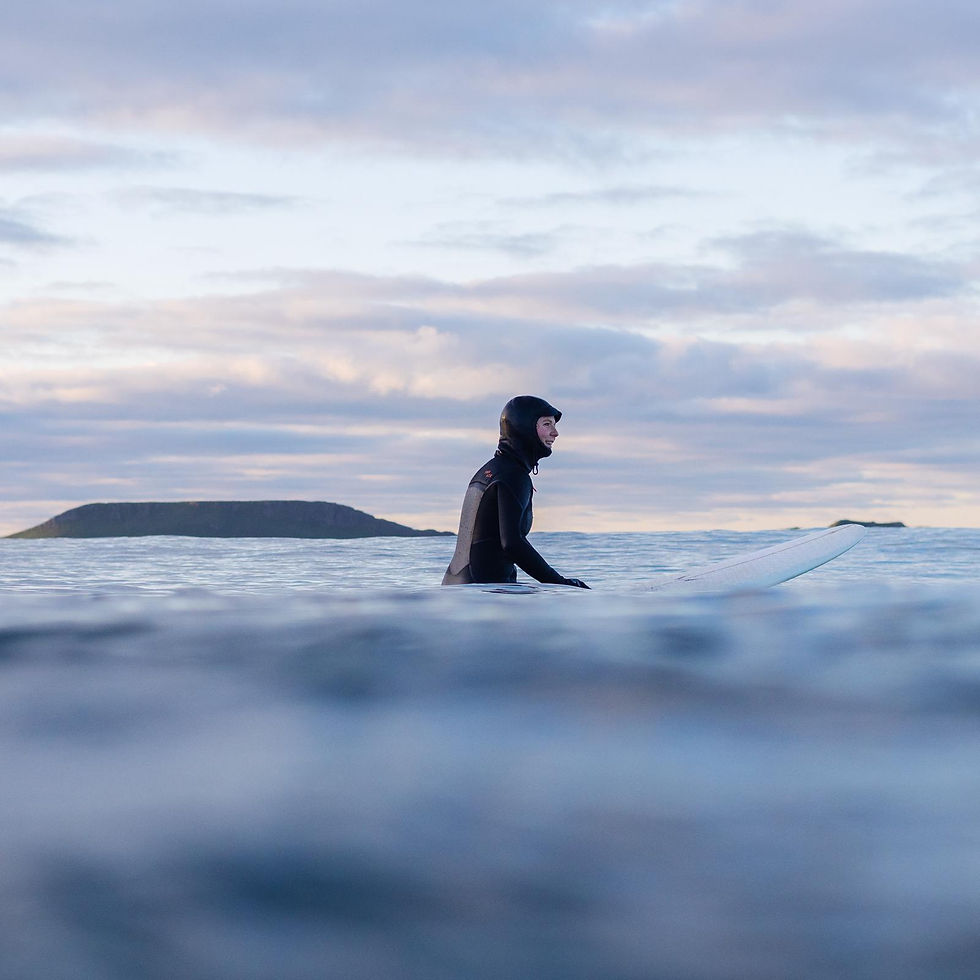Community Spotlight - Millie Parks
- UK Youth for Nature
- Jun 12, 2025
- 3 min read
Tell us a little about where you live! What drew you to the Gower?
I was originally lucky enough to be chosen for a Masters scholarship at Swansea University, which is what brought me down this way. I absolutely fell in love with Gower (the dream spot for outdoorsy people) and haven't moved since. It was the first ever designated AONB in the UK and has the most beautiful and diverse landscapes for such a small peninsular. An Environmentalist's dream!

You mentioned you’re a gardener - what veggies are you growing at the moment, and how are they doing?
I am not growing much atm as I am currently re-landscaping my garden BUT I always have a constant supply of radishes (delicious smeared with butter and a sprinkle of salt), mixed lettuces and strawberries as they all really easy to grow. I am very excited at the prospect of creating a perennial patch with some of my favourites in!

Your work on rivers sounds incredibly cool. Can you tell us a bit about River Connectivity?
Where do I start! This was a research project for my MSc and before I started, I hadn't realised it was such a big issue. There are currently over a million river barriers in Europe (on average this is ~0.74 barriers per km). Here in the UK a lot of abandoned or redundant river barriers are left over from the industrial revolution. They hinder the free-flowing nature of rivers, causing habitat fragmentation which disrupts natural flow regimes and affects migratory fish. With species like Atlantic salmon classified as 'endangered' in the UK, it is vital that we focus on restoring river connectivity and freshwater habitats.

You recently wrote an incredible piece on chicken poop pollution in the Severn and Wye. Have we seen the peak of public anger on this issue, or will it continue to rise?
Thanks Ben! Sadly, I don't think many people know about the rise of American-style mega-farms in the UK and the harm they are causing to our iconic waterways. In the UK, I think we all still believe our animal produce is reared on quaint family farms. Unfortunately, this is not the majority case. BUT this gives us at UKY4N an opportunity to increase awareness on the issue and mobilise public anger to call for better monitoring and management practices within the industry. It is a lot easier to save a dying river than to restore a dead river.

Your research covers seaweed and climate resilience - how do these topics intersect?
These topics interact more than we ever thought previously. Scientists are discovering how much of a key carbon sink that seaweeds act as globally. Through photosynthesis, seaweeds store carbon in their biomass and this can be sequestered as they die, sinking to the sea floor. Also, we're now realising that many seaweeds act as 'keystone species' within their ecosystem. These are species that are critical to the success and diversity of an ecosystem. Without these, the whole ecosystem could fail. Through my current research, we are recording the morphological and physiological traits of seaweeds to determine which ones stand out at keystone species and how these intertidal ecosystems will change under various climate change scenarios.

Any funny or most embarrassing moments that have happened to you on fieldwork?
Way too many to count. Working on rocky shores and difficult terrain means I am falling over all the time - if I am lucky its just a crevice, if not, its a rock pool. My dog Bruno loves to come out in the field with the team and recently he didn't see a deep rock-pool, kept walking and fell in with a huge splash. Still brings a smile to my face.
A conversation between Millie Parks and Ben Larsen.



Comments